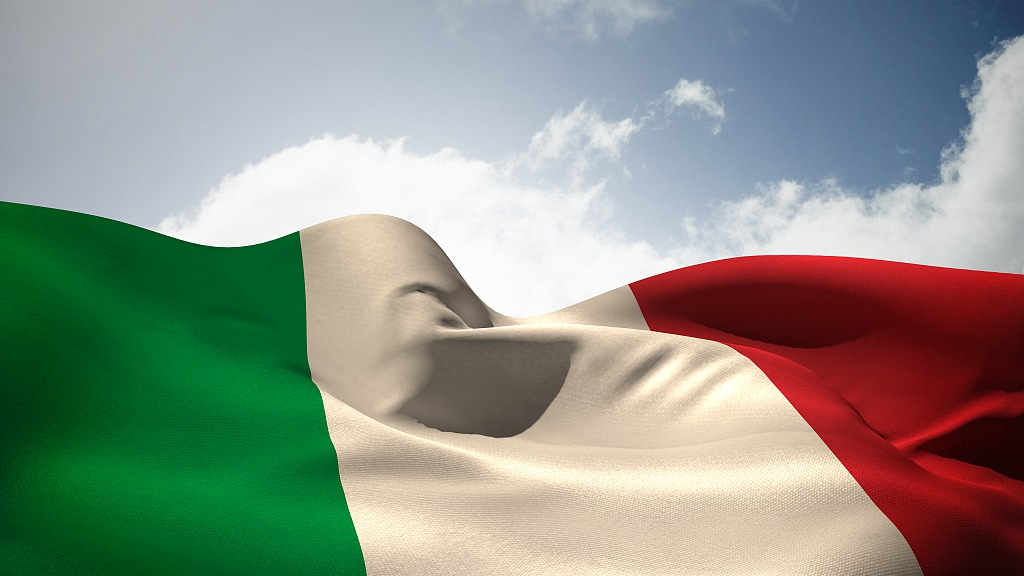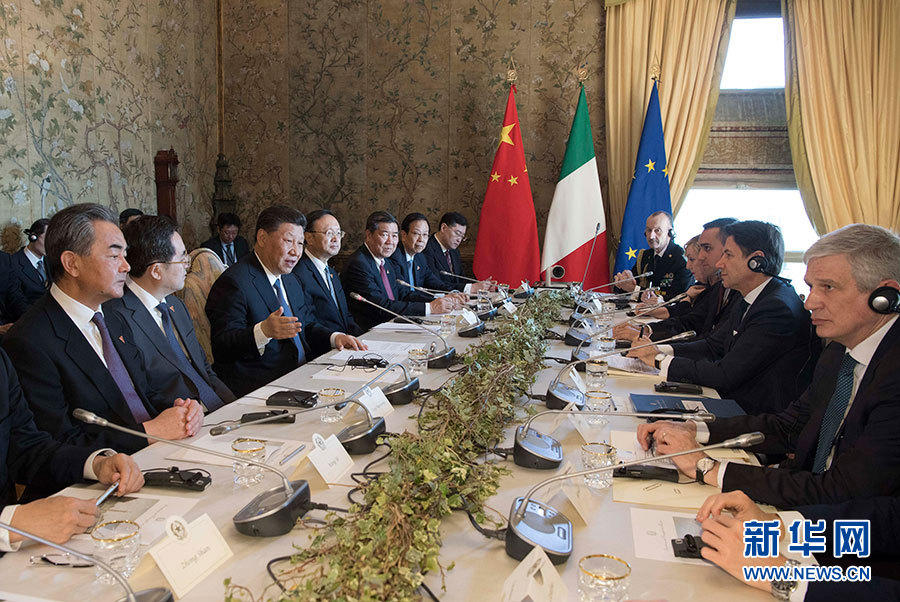
TV Show
14:01, 26-Mar-2019
Joining BRI brings the greatest benefits to Italy
The Heat
01:15

On March 21, Chinese President Xi Jinping arrived in Rome for a state visit to Italy. Xi met with the Italian Prime Minister Giuseppe Conte two days later.
March 23 marks the official start of a new era for China and Italy as a historic advancement of China's Belt and Road Initiative (BRI) took place in Rome. Italy became the first G7 country to sign on to the project.
As the first developed economy to officially join China's Belt and Road Initiative (BRI), Italy hopes to increase exports to China by another 8 billion U.S. dollars.
The Memorandum of Understanding (MoU) between the two countries was signed during Xi's first stop – in a European tour that will also take him to Monaco and France.
The memorandum includes numerous infrastructure improvements in Italy, whose bilateral trade with China reached a record 54.2 billion U.S. dollars last year, according to Italy's Undersecretary for Economic Development.
China will also gain greater access to Italian ports to the Mediterranean ocean in addition to infrastructure and telecommunication cooperation. Both the EU and the U.S. have expressed concern about increasing Chinese influence in the region. Domestically, the Deputy Prime Minister Matteo Salvini expressed national security concern for Italy after joining the BRI.

Chinese President Xi Jinping (center left) speaks to Italian Prime Minister Giuseppe Conte (center right) in Rome, Italy, March 23, 2019. /Xinhua Photo
Chinese President Xi Jinping (center left) speaks to Italian Prime Minister Giuseppe Conte (center right) in Rome, Italy, March 23, 2019. /Xinhua Photo
“There is a lot of misunderstanding and misperception around the world,” says Zhao Hai, who is a Research Fellow with the Chinese Academy of Social Sciences in Beijing. He calls on the EU and international communities to recognize China's good attention.
In Nicola Casarini's opinion, the key reasoning behind Salvini's criticism is Italy's remaining position as the pillar in NATO and the Transatlantic Alliance while joining China's BRI. Salvini's pro-U.S. and pro-NATO opinion can originate from his good chance of becoming the next Prime Minister, explains Casarini.
Nicolas Véron points out that besides commercial and economic aspects, China and Italy both hold strategic positioning in the memorandum. Yet, “China has been a bit ambiguous until now as they have relationship with the European Union level and also at the level of individual countries,” says Nicolas Véron, “but it's not very coordinated.”
Véron also suggests that at this point, it is a critical question for Chinese leaders to consider if they want BRI to be integrated on the European level or to be seen as picking and choosing specific partners at the risk of being treated as “hostile to EU integration.”
The Heat with Anand Naidoo is a 30-minute political talk show on CGTN. It airs weekdays at 7:00 a.m. BJT and 6:00 p.m. Eastern in the United States
(If you want to contribute and have specific expertise, please contact us at opinions@cgtn.com.)

SITEMAP
Copyright © 2018 CGTN. Beijing ICP prepared NO.16065310-3
Copyright © 2018 CGTN. Beijing ICP prepared NO.16065310-3